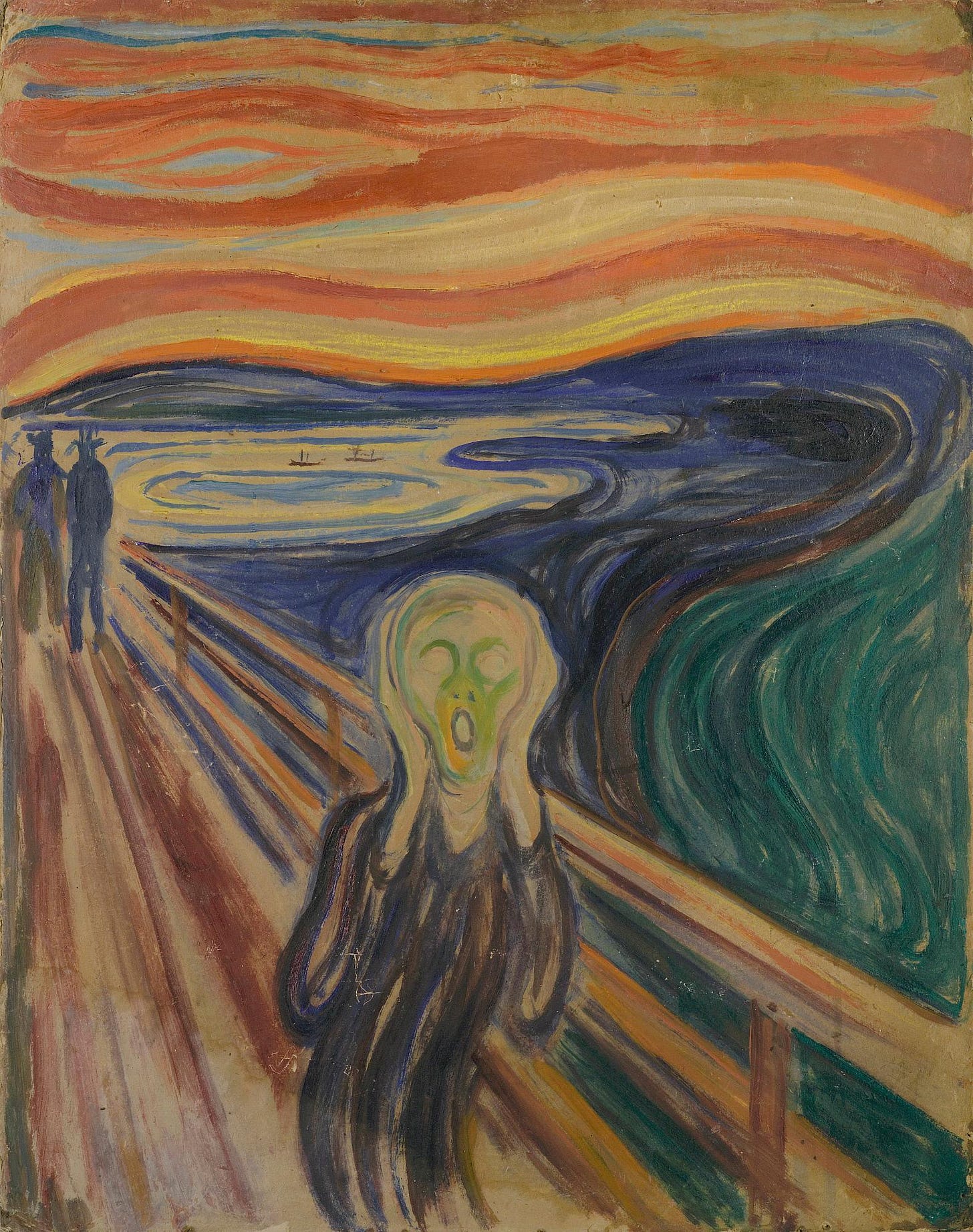The ghost within...
We can't resist featuring another Emily Dickinson poem—they're just so good! This one redefines 'spooky' and frankly makes us shiver
One need not be a chamber—to be haunted— One need not be a House— The Brain—has Corridors surpassing Material Place— Far safer, of a Midnight—meeting External Ghost— Than an Interior—confronting— That cooler—Host— Far safer, through an Abbey—gallop— The Stones a’chase— Than moonless—One’s A’self encounter— In lonesome place— Ourself—behind Ourself—Concealed— Should startle—most— Assassin—hid in Our Apartment— Be Horror’s least— The Prudent—carries a Revolver— He bolts the Door, O’erlooking a Superior Spectre More near—

What we love about this passage…
Emily Dickinson’s poem, with its suggestion that it is ‘safe’ to meet a ghost, goes against all the horror stories and movies we know. But she warns us that it’s human nature rather than ghosts that should really be feared.
The repeated dashes give a jolting quality to the poem, and the recurrent pauses suggest that the speaker struggles to express this unsettling revelation.
To confront one’s inner self is potentially worse than anything that could be found outside – supernatural or not. The poem seems to be suggesting that we just might be able to escape an external ghost, but we can never escape ourselves…
About the Author
Emily Dickinson (1830-86) is widely regarded as one of the most important and innovative American poets. She spent most of her life in Amherst, Massachusetts, living reclusively but writing constantly, both poetry and letters. Her work was published after her death and became an instant success.
She once described the power of poetry as something that ‘takes the top of your head off’.
Dickinson is a regular favorite with us, and you can read some of our past newsletters featuring her poems: ‘This World is not Conclusion’ and ‘The Brain is Wider than the Sky’
To read alongside…
Update: One of our readers wrote in with this brilliant suggestion after receiving this newsletter, so we’re adding it here belatedly for our LitHits newsletter archive. It’s from the poem ‘Desert Places,’ by Robert Frost:
'They cannot scare me with their empty spaces Between stars - on stars where no human race is. I have it in me so much nearer home To scare myself with my own desert places.'
Henry James’s The Turn of the Screw is a ghost story in which it is difficult to know whether the ghosts are real, or a figment of the disturbed narrator’s troubled mind – and which is the scariest of these two alternatives!
The idea of being haunted (by ghosts or by the self) is also explored by Sarah Waters in her 2009 novel The Little Stranger, which was made into a film in 2018.
The motif of ‘doubling’, or of the self split into two selves (one horrific and one ‘normal’), was popular in the late 19th century, a time when the newly established field of psychology was beginning to explore the nature of selfhood. Brilliant examples include Dostoevsky, The Double; Conrad, ‘The Secret Sharer’; and Stevenson, ‘The Strange Case of Dr Jekyll and Mr Hyde.’
Harold Pinter’s early play The Dumb Waiter literalizes Dickinson’s idea of an ‘Assassin—hid in Our Apartment.’ Are the two assassins in Pinter’s play who are waiting for their next assignment just two sides of a single self, with the one—spoiler alert!—inevitably having to kill the other in the end? The play ends with one pointing his gun at the other…
Guest Curator
Emma Serle is a third-year undergraduate studying English at the University of Oxford. Last year on an internship with LitHits she developed several newsletter contributions, including this one. She will start teacher training later this year at the University of Cambridge.
Suggest a LitHit!
Tell us your own favourites from literature you've read, and we can feature you as a Guest Curator. Just email us with the following information:
Your full name
The title of the book you're suggesting
The location of the excerpt within the book (e.g., "in the middle of chapter 5"), or the excerpt itself copied into the email or attached to it (in Word)
Why you love it, in just a few sentences
About LitHits
LitHits helps you make time for reading by bringing you unabridged excerpts from brilliant literature that you can read on the go, anytime or any place. Our curators carefully select and frame each excerpt so that you can dive right in. We are more than a book recommendation site: we connect you with a powerful, enduring piece of literature, served directly to your mobile phone, tablet or computer.
You might also enjoy...
Feedback
We'd love to hear your thoughts on our newsletter:
kshepherdb@yahoo.co.uk
Graphic design by Sara Azmy
All curation content © 2023 LitHits. All rights reserved.

